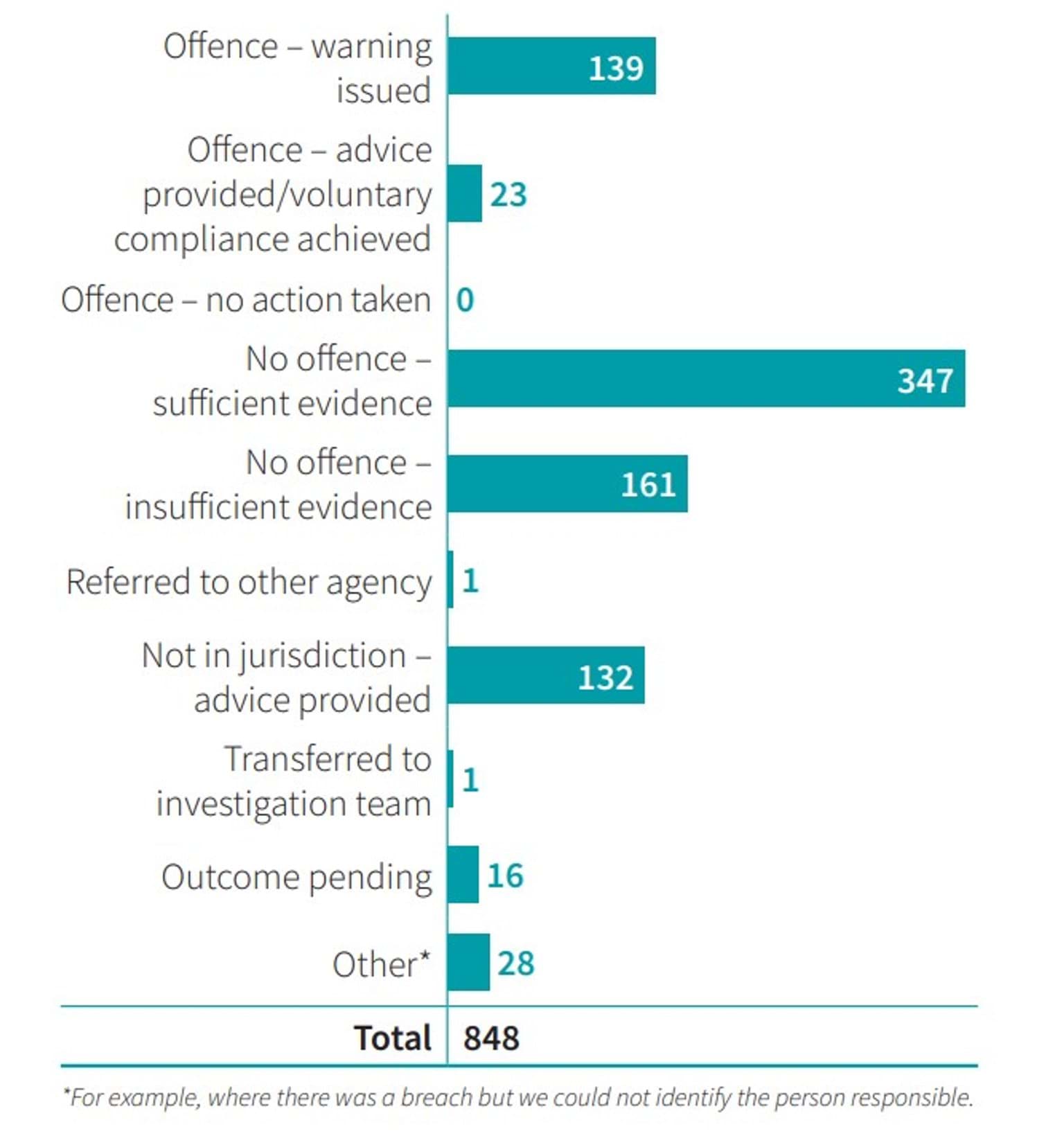During the 2020 election period, we received 848 complaints; this compares with an average of 500 complaints a year in a non-election year. During the 31 days of the election period, our staff handled an average of 36 complaints per day.
Those who contacted us for guidance, information or to lodge a complaint included councils, councillors, candidates and voters.
Where we received complaints from
Of Victoria’s 79 councils, we received no complaints about 20 councils (including three under administration where there were no elections) and received 10 or less complaints per council about 37 councils. This meant the vast majority of complaints (78 per cent) related to just 22 councils. Furthermore, 228 complaints – a quarter of all complaints – related to just three councils: Nillumbik, Stonnington and Wyndham.
Who were the complaints from and who were they about?
The majority of complaints were made by members of the public (40 per cent) with the second-highest number coming from candidates, including councillors standing for re-election (38 per cent). About 13 per cent were anonymous. Most complaints were about candidates (53 per cent), followed by complaints about councillors running for re-election (23 per cent).
Breaches and offences against the Act
When assessing complaints, we look at whether or not there has been a breach or offence against the Local Government Act and what section of the Act has been breached.
| Section | Number of complaints |
|---|---|
| 288 Misleading and deceptive matter | 263 |
| 287 Printing and publication of electoral material | 244 |
| Not applicable* | 172 |
| 286 Nomination offence** | 54 |
| 300 Bribery, treating and undue influence | 33 |
| 304 Prohibition on councillor or member of Council staff | 33 |
| 76D Misuse of position | 19 |
| 252 Provision of voter’s roll to candidate | 9 |
| 299 Offence to interfere with postal ballot materials | 9 |
| 289 Heading to electoral advertisements | 3 |
| 294 Voting offences (includes forgery) | 3 |
| 301 Interference with political liberty | 3 |
| 290 Author to be identified | 2 |
| 293 False or misleading information or particulars | 1 |
* Includes complaints about COVID-19 restrictions, defamation, intimidation and placing or removing posters without permission.
** Includes dummy candidates (26 complaints) and eligibility due to residence, character, alleged criminal history or conflicting duties (23 complaints).
Rise of social media complaints
In 2020, complaints about the use of social media and online content in election campaigns more than tripled, from 78 in 2016 to 266 in last year.
We received an increase of 118 per cent of complaints about the authorisation of election material during the 2020 election period and 31 per cent of all issues raised were about content that was specifically published online.
While social media provides an economical way for candidates with limited financial backing to reach the electorate, it can produce challenges for existing legislation.
Updated


